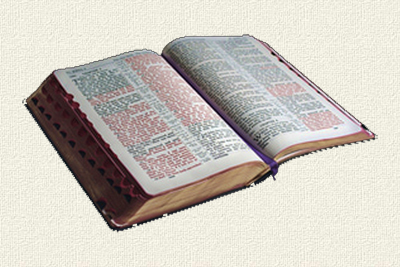

Jochebed was the mother of Moses, one of the major characters in the Old Testament. Her appearance is short and we are not told much about her, but one trait stands out: trust in God.
The Jews had been in Egypt 400 years. Joseph had saved the country from a famine, but eventually he was forgotten by the Egyptian rulers, the Pharaohs. The Pharaoh in the opening of the book of Exodus was afraid of the Jews because there were so many of them. He feared they would join a foreign army against the Egyptians or start a rebellion. He ordered all male Hebrew babies to be killed.
When Jochebed gave birth to a son, she saw that he was a healthy baby. Instead of letting him be murdered, she took a basket and coated the bottom with tar, to make it waterproof. Then she put the baby in it and set it among the reeds on the bank of the Nile River. At that same time, Pharaoh's daughter was bathing in the river. One of her maidservants saw the basket and brought it to her.
Miriam, the baby's sister, watched to see what would happen. Bravely, she asked Pharaoh's daughter if she should get a Hebrew woman to nurse the child. She was told to do that. Miriam fetched her mother, Jochebed—who was also the baby's mother—and brought her back.
Jochebed was paid to nurse and care for the boy, her own son, until he grew. Then she brought him back to Pharaoh's daughter, who raised him as her own. She named him Moses. After many hardships, Moses was used by God as his servant to free the Hebrew people from slavery and lead them to the edge of the promised land. Jochebed gave birth to Moses, future Giver of the Law, and cleverly spared him from death as an infant.
She also gave birth to Aaron, a high priest of Israel. Jochebed had faith in God's protection of her baby. Only because she trusted the Lord could she abandon her son rather than see him killed. She knew that God would take care of the child. Jochebed showed great trust in God's faithfulness. Two lessons emerge from her story. First, many unwed mothers refuse to have an abortion, yet have no choice but to place their baby for adoption. Like Jochebed, they trust God to find a loving home for their child. Their heartbreak at giving up their baby is balanced by God's favor when they obey his command not to kill the unborn.
The second lesson is for heartbroken people who have to turn their dreams over to God. They may have desired a happy marriage, a successful career, developing their talent, or some other worthwhile goal, yet circumstances prevented it. We can only get through that kind of disappointment by turning it over to God, like Jochebed put her child in his care. In his gracious way, God gives us himself, the most desirable dream we could ever imagine.
When she placed little Moses in the Nile River that day, Jochebed could not have known that he would grow up to be one of God's greatest leaders, chosen to rescue the Hebrew people from slavery in Egypt. By letting go and trusting God, an even greater dream was fulfilled. Like Jochebed, we won't always foresee God's purpose in letting go, but we can trust that his plan is even better. Probably Goshen, in the land of Egypt. Jochebed's story is found in chapter two of Exodus, Exodus 6:20, and Numbers 26:59. Wife, mother, homemaker. Father - Levi Exodus 2:1-4 (NIV) Exodus 2:8-10 (NIV)

Jochebed's Accomplishments:
Jochebed's Strengths:
Life Lessons:
Hometown:
Referenced in the Bible:
Occupation:
Family Tree:
Husband - Amram
Sons - Aaron, Moses
Daughter - Miriam
Key Verses:
Now a man of the tribe of Levi married a Levite woman, and she became pregnant and gave birth to a son. When she saw that he was a fine child, she hid him for three months. But when she could hide him no longer, she got a papyrus basket for him and coated it with tar and pitch. Then she placed the child in it and put it among the reeds along the bank of the Nile. His sister stood at a distance to see what would happen to him.
So the girl went and got the baby's mother. Pharaoh's daughter said to her, "Take this baby and nurse him for me, and I will pay you." So the woman took the baby and nursed him. When the child grew older, she took him to Pharaoh's daughter and he became her son. She named him Moses, saying, "I drew him out of the water."
